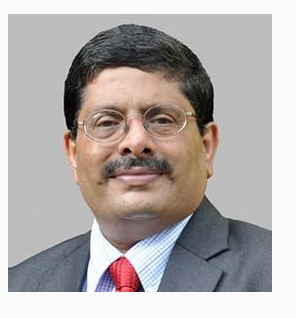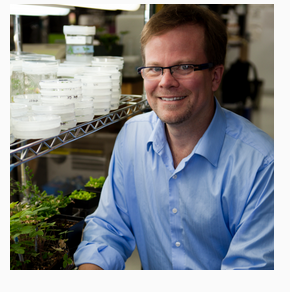GENeS Launches New Resource Aims to Improve Media Coverage of Ag Biotech
 How often have you been frustrated by the rampant misinformation in media coverage of ag biotech? How many times have you wondered why a reporter quoted that source, or that agenda-driven organization rather than the field s leading expert? Late last month, a new project called the Genetic Expert News Service (GENeS) launched with the goal of significantly improving the accuracy of media coverage of genetics and biotechnology .
How often have you been frustrated by the rampant misinformation in media coverage of ag biotech? How many times have you wondered why a reporter quoted that source, or that agenda-driven organization rather than the field s leading expert? Late last month, a new project called the Genetic Expert News Service (GENeS) launched with the goal of significantly improving the accuracy of media coverage of genetics and biotechnology .
When news about biotechnology breaks, journalists often struggle to answer critical questions on deadline. Who is the real expert who understands the implications of genome-editing? How solid is the data in a new report? Is this a respected journal? Is this story newsworthy?
These questions challenge not only daily journalists, but also leaders of NGOs, policy-makers, and the public. Designed to emulate the UK s Science Media Centre, GENeS aims to provide journalists with access to robust and accurate scientific information and expert sources as quickly as possible. Based in Washington, DC, and operated in association with the Institute for Food and Agricultural Literacy at the University of California, Davis, the project s founding director, Robin Bisson, is a former staffer at the Science Media Centre.
In a recent post on the Genetic Literacy Project, Bisson explained that one of the project s major objectives is to encourage more scientists to get involved in public discussions and not leave it to groups who may hold commercial or ideological values above scientific accuracy. To achieve this goal, GENeS is building a database of researchers from across North America who are willing to be called when a news story comes up in their area of expertise.
After collecting the expert reactions of scientists, GENeS will pass them on to reporters. Timing is essential, Bisson wrote in a guest post on Scilogs. We believe getting evidence-based information to reporters early, at the time they are on a story, is a constructive way for scientists to impact news coverage. A crucial role of GENeS is to expand the numbers of researchers prepared and willing to engage in the ag biotech media arena, as well as to encourage them to respond quickly when news breaks.
By building a rapid response network of scientists, GENeS seeks to address one of the biggest challenges in science communication. Wrote Bisson on Scilogs:
As commercial and ideological voices pile into polarized debates, the view from science can get lost, Bisson wrote. GENeS intends to present that view by reaching out to the academic community for the weight of opinion on critical topics, reflecting the diversity of views within science but not perpetuating the false balance which has dogged issues like climate change and the safety of genetically engineered foods currently on the market.
For more information on GENeS, and how it works with both scientists and journalists, please read Bisson s introductory post on the GLP , or visit the site at geneticsexperts.org.
C.S. Prakash To Receive Borlaug Communications Award
 Anyone who has closely tracked the GMO conversation over the past decade knows the name C.S. Prakash. Although Channapatana S. Prakash is perhaps most widely known for his Internet advocacy (beginning with the pioneering AgBioView, an email newsletter that curated global biotech news and played a critical role in forging a network of thousands of biotech allies), his work has extended far beyond the Internet. Last month, the Council for Agricultural Science and Technology (CAST) announced that it will honor Prakash, a Professor of Plant Molecular Genetics at Tuskegee University, with its 2015 Borlaug Communication Award.
Anyone who has closely tracked the GMO conversation over the past decade knows the name C.S. Prakash. Although Channapatana S. Prakash is perhaps most widely known for his Internet advocacy (beginning with the pioneering AgBioView, an email newsletter that curated global biotech news and played a critical role in forging a network of thousands of biotech allies), his work has extended far beyond the Internet. Last month, the Council for Agricultural Science and Technology (CAST) announced that it will honor Prakash, a Professor of Plant Molecular Genetics at Tuskegee University, with its 2015 Borlaug Communication Award.
“Prakash has arguably done more than anyone else in academia or industry to promote agricultural technologies that can help feed the world’s growing population, said one nominator of Prakash s work.
A native of India, who was educated in India and Australia, Prakash s research was instrumental in establishing the plant biotechnology program at Tuskegee University in Alabama, where he has served as a faculty member since 1989.
In addition to his research in plant genetics, biotechnology, and the genomics of crop plants, Prakash has tirelessly promoted the importance of agricultural biotechnology for crop security in the developing world. He has given talks in more than 70 countries, helped initiate a global campaign in support of Golden Rice field trials, and, according to the CAST announcement, has worked for decades to deliver clear, science-based information to the public and policymakers alike. Norman Borlaug once praised Prakash for bringing common sense into the use of biotechnology.
Prakash will be honored at the World Food Prize Symposium on October 14, 2015 in Des Moines, Iowa. The Borlaug CAST Communication Award honors the legacies of Nobel Prize winner Dr. Norman Borlaug and Dr. Charles A. Black, the first president of CAST.
Victory for Science: Brazil Approves FuturaGene s Biotech Eucalyptus Tree
 Last month, the global scientific community won a huge victory when Brazil s National Technical Commission on Biosafety (CTNBio) approved the commercial use of the first high-yield biotech eucalyptus tree a tree that will produce more wood using less land.
Last month, the global scientific community won a huge victory when Brazil s National Technical Commission on Biosafety (CTNBio) approved the commercial use of the first high-yield biotech eucalyptus tree a tree that will produce more wood using less land.
As many Monthly Monitor readers know, the decision is particularly meaningful because it comes less than six weeks after hundreds of anti-GMO protestors attempted to stop the approval process for the GM tree despite years of biosafety assessment that has concluded that the tree is just as safe as conventionally-bred eucalyptus trees.
Science prevailed, said Eugenio Ulian, Vice President of Regulatory Affairs at FuturaGene, the company that has been developing the tree for more than 15 years. And we are grateful to the global scientific community that provided so much support during these past weeks.
The decision paves the way for the introduction of a eucalyptus tree that yields 20% more than its equivalent conventional variety, according to data FuturaGene has compiled since 2006. Producing more wood without increasing the use of natural resources is a constant challenge for all industry players, said Stanley Hirsch, FutureGene s CEO. Hirsch called the approval an important milestone because it shows that biotech is an important tool for sustainability, and not an environmental problem, as depicted by many groups who choose not to look at the data.
Citing a World Wildlife Fund s Living Forests report that estimated global demand for wood would triple by 2050, Hirsch said that to meet the soaring demand at current rates of productivity, we would need to plant an additional 250 million hectares of plantations. Instead of adding more plantations, Hirsch advocates sustainable intensification of the current land in use.
Conventional breeding of certain species such as eucalyptus is reaching diminishing returns, Hirsch said. Biotech, by contrast, has proven to be a valuable tool to grow more trees on less land, and to protect yields from a changing spectrum of disease and pests resulting from climate change. I hope that this approval will be the first step in the approval of additional beneficial technologies for enhancing renewable plantation forests, Hirsch said.
The increased yields provided by the GM trees will not only provide environmental benefits, but will also provide benefits to small landholders, FuturaGene says. Small landholders will have access to the technology under terms of current contracts, which do not involve the payment of royalties.
Rog rio Trevisani Teixeira, who farms cattle and timber on 360 hectares in Itapetininga, Sao Paulo state, said he was delighted by the news of the GM trees approval by CTNBio. Like many Brazilian farmers, Teixeira s land has become degraded in recent years, and he has increasingly turned to farming eucalyptus trees which now cover 30% of his property. I think this is good not just for me but for everyone, said Teixeira, since the demand for product grows by the day and the plantations stay the same size.
For Teixeira, who plans to get the GM trees as soon as they re available and gradually replace his conventional trees, it is a very easy decision. If the trees produce 20% more wood, my income will increase by 20%, since the investment costs are the same. This is practically a dream come true.
For more reading, please see our complete interview with Stanley Hirsch, in which he discusses the company s plans to develop both GM and non-GM varieties of plants for introduction in Brazil, China and the US. Also, see James Thompson s recent story in Farm Futures on why so many Brazilian soy farmers are growing eucalyptus.
In the Aftermath of Science#14, Kevin Folta Warns that FOIAs are Chilling Dialogue; Urges Scientists to Communicate

University of Florida horticulturalist Kevin Folta was one of the 14 public sector scientists who received Freedom of Information Act (FOIA) requests in February demanding that he share years of personal correspondence with a list of agricultural companies, trade organizations, communications and NGOs. In an April essay for the American Society for Plant Biology, Folta makes a powerful and deeply personal appeal to fellow scientists. Folta shares his firsthand observation of how the US RTK has had a chilling impact on colleagues, and why he believes it s so critical that fellow scientists are not intimidated by these tactics. To move science s discoveries from the laboratory to widely accepted application will require all of our participation, Folta writes, and communicating with a curious public must become a priority mission for us as scientists. Read Folta s full essay here.
